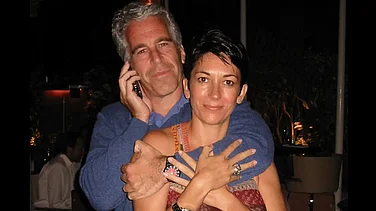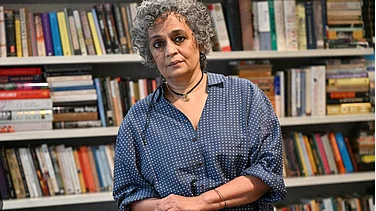Azerbaijan said it was delivering food and other humanitarian aid to Nagorno-Karabakh on Friday, two days after the region's ethnic Armenian separatist government called a cease-fire in a short but intense fight with Azerbaijani forces.
But the aid will be only a slight relief to the region that has endured severe food and medicine shortages since last December, an ordeal now aggravated by thousands who fled the recent fighting without being able to take food with them.
Nagorno-Karabakh's 120,000 people began suffering shortages late last year when a blockade began of the road connecting the region to Armenia.
Improving the supply of food and other basic needs will be a key issue in building stability in the region, which is within Azerbaijan but had been under the control of ethnic Armenian forces since 1994.
Azerbaijan on Tuesday launched intense fire on Armenian positions in what it called an “anti-terrorist operation,” demanding that the Armenians lay down their arms and the separatist government disband.
A day later, Nagorno-Karabakh authorities agreed to the military demands, but talks on how the region will be reintegrated into Azerbaijan have not reached final agreement.
Armenian Prime Minister Nikol Pashinyan on Friday said at a government meeting that there was no immediate need for the region's ethnic Armenians to leave their homes, but said Armenia is prepared to receive as many as 40,000 evacuees if needed.
Anxiety is high among the region's people.
“The majority of the population wants to be evacuated to Armenia. We cannot live with Azerbaijan,” 21-year-old Hayk Harutunyan said in Stepanakert, the regional capital.
“During the last 30 years thousands of Armenians were killed, our brothers and sisters,” he told The Associated Press by telephone, referring to decades of conflict over the region.
"Azerbaijan's goal is the annihilation of the Armenian nation; how can we live with those who want to kill us?”
Harutunyan said “the whole city is full of refugees brought from those regions ... that came under the control of Azerbaijan after the September 19 attack. These people left their homes empty-handed, they had no food, no clothes, no place to stay.”
Azerbaijan's emergencies ministry said two 20-ton trucks with food and hygiene products as well as two trucks with bread were dispatched to Nagorno-Karabakh on Friday, travelling on the road from Aghdam, which lies east of the region.
Supplies for Nagorno-Karabakh previously had come from Armenia, to the west.
Jeyhun Bayramov, Azerbaijan's foreign minister, said at the United Nations on Thursday that his country is determined to guarantee Nagorno-Karabakh residents “all rights and freedoms” in line with the country's constitution and international human rights obligations, including safeguards for ethnic minorities.
Talks with Nagorno-Karabakh in the Azerbaijani city of Yevlakh will continue, he said.
A Stepanakert woman who gave her name only as Mary said the ceasefire regime appeared to be holding on Friday, but that she feared living under the new conditions.
“Azerbaijan starved us for nine months, deprived us of basic living conditions, then attacked the civilian population, how can we stay here after all these atrocities? It's impossible," she said.
Nagorno-Karabakh came under the control of ethnic Armenian forces backed by the Armenian military in separatist fighting that ended in 1994. Armenian forces also took control of substantial territory around the Azerbaijani region.
Azerbaijan regained control of the surrounding territory in a six-week war with Armenia in 2020.
A Russia-brokered armistice ended the war, and a contingent of 2,000 Russian peacekeepers was sent to the region to monitor it.
The agreement left Stepanakert connected to Armenia only by the Lachin Corridor, along which Russian peacekeepers were supposed to ensure free movement.
But a blockade by Azerbaijan deprived Nagorno-Karabakh of basic supplies for the last 10 months, until Monday, when the International Committee of the Red Cross was able to make a delivery via that road from Aghdam.
Armenian Foreign Minister Ararat Mirzoyan said at the UN that Azerbaijan's offensive this week targeted critical infrastructure such as electricity stations, telephone cables and internet equipment, killed more than 200 people and wounded 400 others, including women and children. More than 10,000 people fled their homes to escape the offensive, he said.
Electricity and phone service were knocked out, leaving people unable to contact each other, and “Azerbaijani troops control main roads in Nagorno-Karabakh, which makes it impossible to visit and get information on the ground,” he said.





















